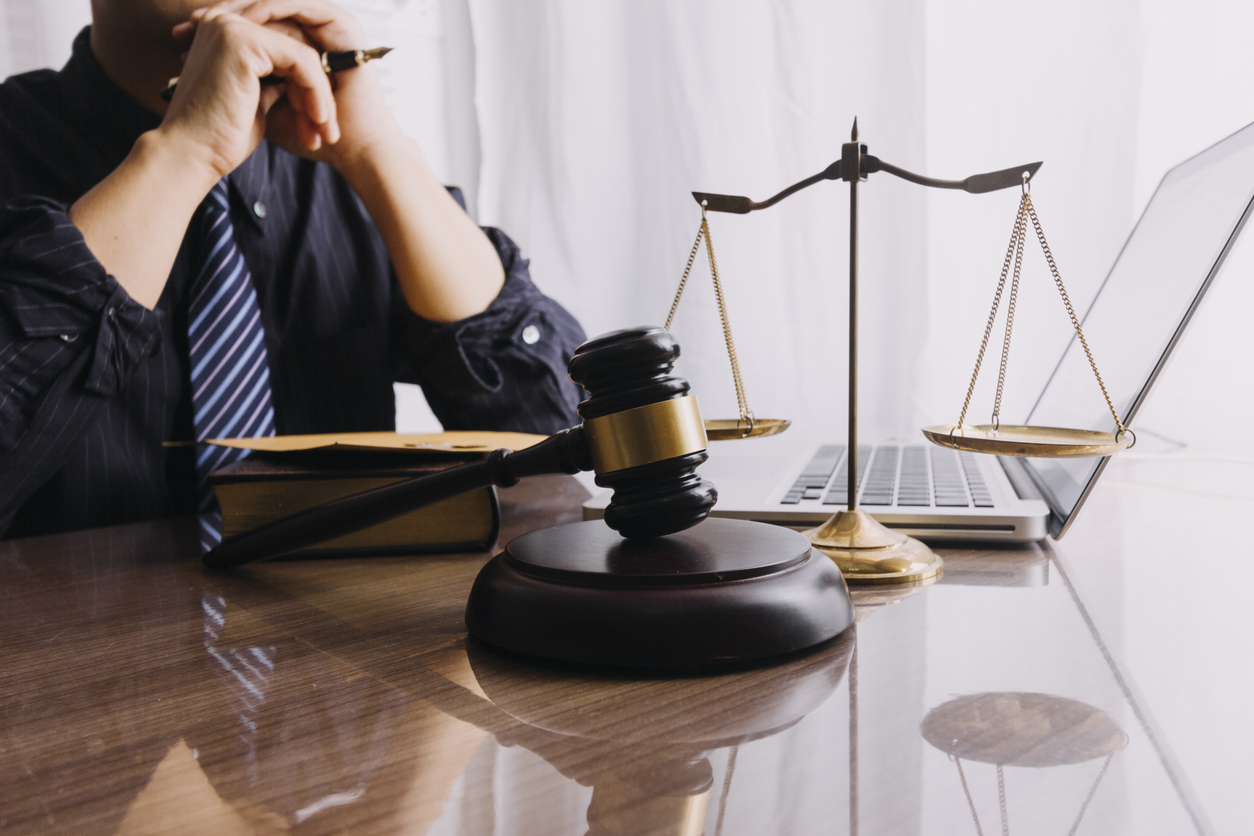What’s the Difference Between an Attorney and a Trial Attorney?
Perenich, Caulfield, Avril & Noyes Personal Injury Lawyers | Personal Injury

The legal world is filled with various titles and roles, each serving specific purposes within the justice system.
Two commonly misunderstood terms are “attorney” and “trial attorney.” While both are crucial to legal representation, their responsibilities and expertise differ. This blog breaks down the key differences, helping you understand when you may need one over the other.
What Is an Attorney?
An attorney, or lawyer, is a licensed professional who offers legal advice, drafts documents, and represents clients in legal matters. Attorneys can work in various fields, including corporate law, family law, criminal defense, and personal injury law. Their daily work may involve negotiating settlements, advising clients on legal strategy, or preparing contracts.
The responsibilities of an attorney are:
- Offering legal advice to clients
- Drafting legal documents like contracts, wills, and estate plans
- Researching laws and case precedents to offer the best legal options
- Negotiating settlements or plea deals
- Representing clients in court
Attorneys can handle many facets of law without ever stepping into a courtroom.
What Sets a Trial Attorney Apart?
A trial attorney is a legal professional who specializes in settling disputes in a courtroom. They are skilled in advocacy, legal research, and courtroom strategy. Trial attorneys prepare and present cases, argue motions, examine witnesses, and make persuasive closing arguments. They are adept at navigating the complexities of the legal system and are dedicated to achieving the best possible outcome for their clients. While all trial attorneys are attorneys, not all attorneys are trial attorneys.
Key Responsibilities of a Trial Attorney
Whether the case involves criminal charges, personal injury, or civil litigation, a trial attorney has the skill set needed to navigate the complexities of the courtroom. Here’s what they do:
- Prepare cases for trial, including gathering evidence and building arguments
- Conduct depositions and pre-trial hearings
- Examine and cross-examine witnesses
- Argue cases in front of a judge or jury
Some of these skills–especially arguing cases before a jury–require the ability to think on one’s feet, to judge character accurately and to tell a compelling story.
The Essential Skills of a Successful Trial Lawyer
Good trial lawyers are a rare breed. Their skills include:
- Intuition and knowledge of human nature to select jurors sympathetic to their client
- Persuasive skills to get favorable information from witnesses during cross-examinations
- Drawing out essential testimony from their own witnesses to bolster their arguments
- Delivering compelling opening and closing statements
- Resilience to think quickly and adapt on the fly as courtroom situations change
- Discipline to remain calm and focused under pressure
The skill set required for trial work is relatively rare within the broader legal community.
Situations Where You Don’t Need a Trial Attorney
You don’t always need your own Atticus Finch, Vinny Gambini, or Elle Woods. Here are some examples of when a trial lawyer is not needed:
- Drafting a will or trust
- Navigating a divorce or custody agreement
- Negotiating a business deal or contract
- Settling a personal injury claim out of court
- Seeking legal advice for a non-court-related issue
If your case involves drafting contracts, negotiating settlements, or other out-of-court actions, an attorney without trial experience might be the right fit.
When to Hire a Trial Attorney
If your legal issue is expected to escalate into a courtroom battle, you should hire a trial attorney.
The following scenarios will likely require a trial attorney:
- Defending against criminal charges
- Pursuing or defending against a lawsuit that goes to court
- Handling a personal injury claim when settlement negotiations fail
- Navigating a civil rights case in court
- Representing a client in a high-stakes financial dispute
In fact, just having a trial attorney on your side can help increase the other side’s settlement offers or make a plea bargain more favorable.
Contact Perenich Personal Injury Lawyers Today
Whether you’re seeking legal advice or preparing for a courtroom battle, understanding the expertise of your legal professional ensures you’re getting the right representation for your needs.
Perenich, Caulfield, Avril & Noyes Personal Injury Lawyers is a family firm of three generations of trial lawyers with deep ties to Florida. We are not afraid to take your case to trial if needed, and our opponents know that.
Contact Perenich, Caulfield, Avril & Noyes Personal Injury Lawyers today for a free consultation with an experienced trial lawyer.
Contact the Pinellas County Personal Injury Law Firm Of Perenich, Caulfield, Avril & Noyes Personal Injury Lawyers for Help
For more information, please contact the Clearwater and St. Petersburg personal injury law firm of Perenich, Caulfield, Avril & Noyes Personal Injury Lawyers at the nearest location to schedule a free consultation today.
We serve Pinellas County and its surrounding areas:
Perenich, Caulfield, Avril & Noyes Personal Injury Lawyers – Clearwater
1875 N Belcher Rd. STE 201,
Clearwater, FL 33765
(727) 796-8282
Perenich, Caulfield, Avril & Noyes Personal Injury Lawyers – St. Petersburg
2560 1st Ave S,
St. Petersburg, FL 33712
(727) 349-1728
